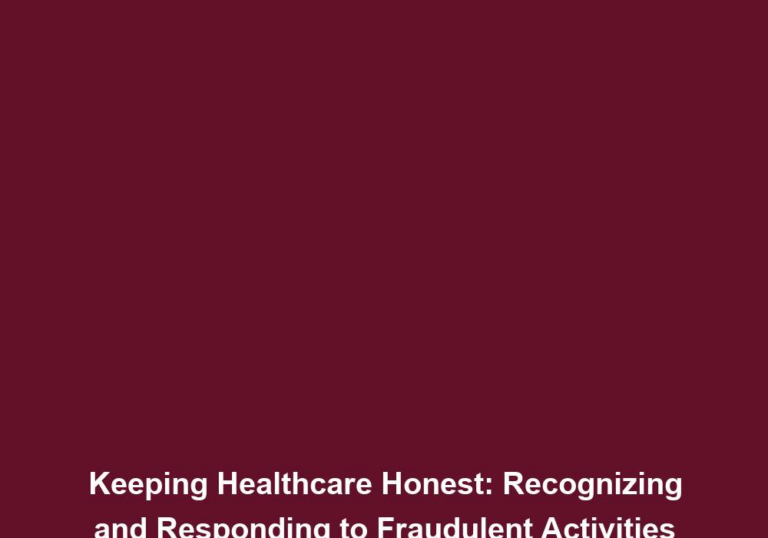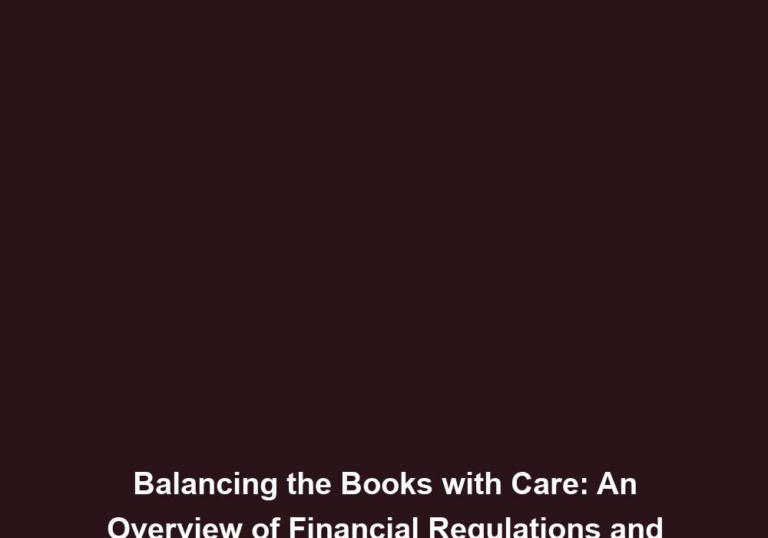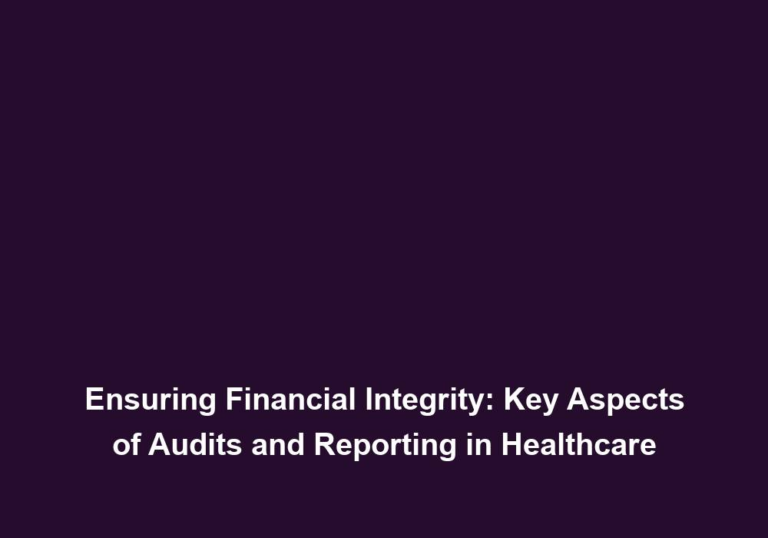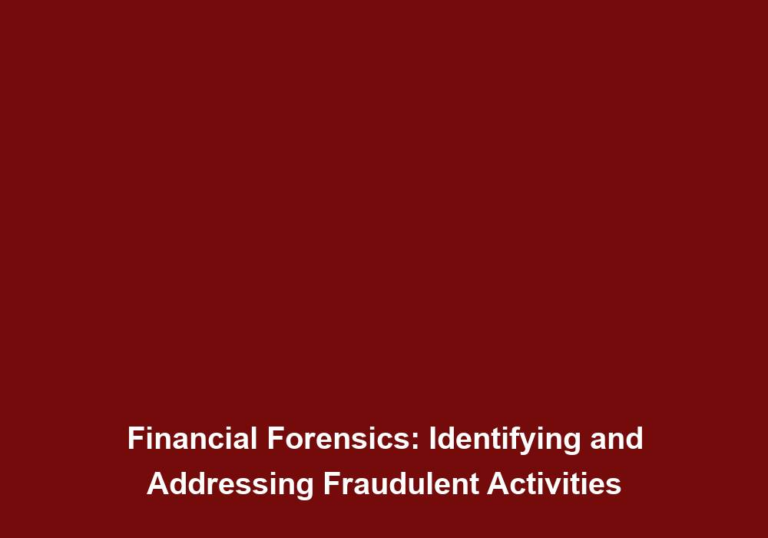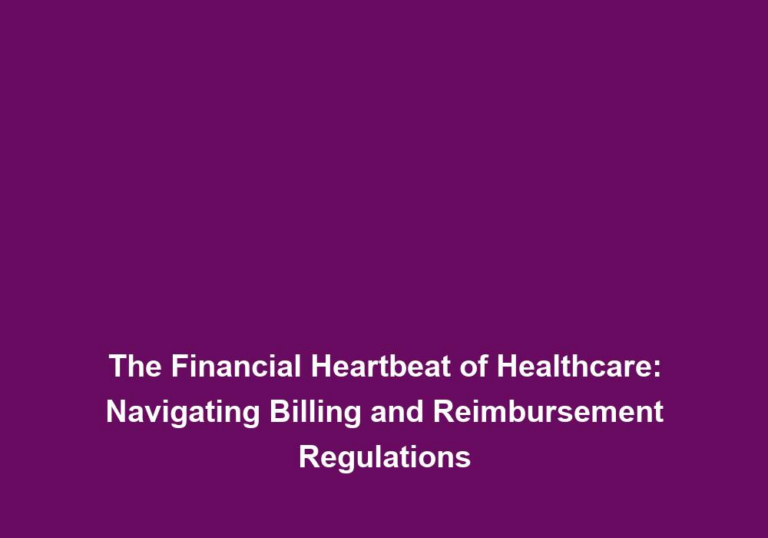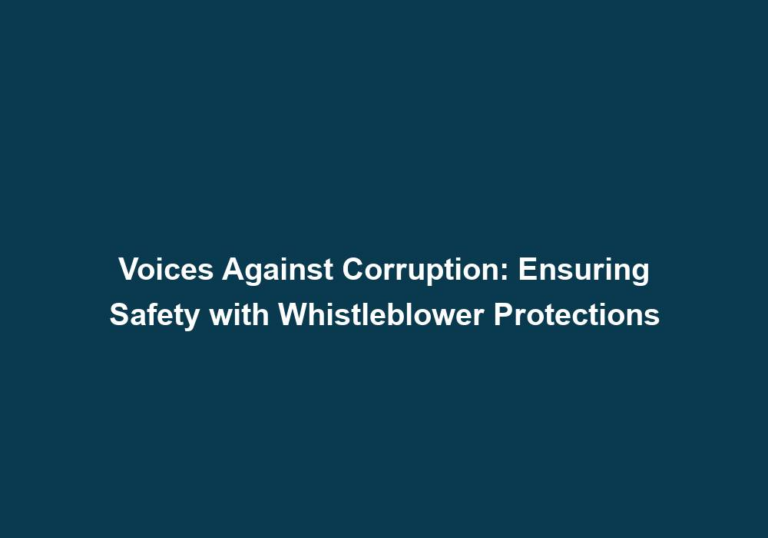From Oversight to Action: Ensuring Financial Integrity with Fraud and Abuse Prevention
Financial integrity is a core aspect of any successful organization. To maintain a strong financial standing and safeguard against risks, it is crucial to have robust measures in place to prevent fraud and abuse. In this article, we will delve into the significance of proactive oversight, the impact of fraud and abuse, and strategies to ensure financial integrity within your organization.
The Importance of Proactive Oversight
Proactive oversight serves as the foundation for maintaining financial integrity. By implementing effective oversight measures, organizations can identify and address potential risks, fraud, and abuses before they escalate. Here are some key reasons why proactive oversight is crucial:
-
Risk Mitigation: Proactive oversight helps in identifying vulnerabilities and implementing preventive measures to mitigate risks. By staying ahead of potential threats, organizations can safeguard their financial resources and reputation. It allows organizations to detect early warning signs and take necessary actions to prevent any adverse impact on financial integrity.
-
Compliance: Adequate oversight ensures compliance with legal and regulatory requirements. By regularly reviewing financial transactions and records, organizations can identify any discrepancies and rectify them promptly, ensuring adherence to all applicable laws and regulations. This not only protects the organization from penalties and legal consequences but also helps in building a reputation for ethical conduct and responsible financial management.
-
Cost Savings: Detecting and preventing fraud and abuse at an early stage saves organizations from significant financial losses. The cost of investigating and rectifying fraud is substantially higher than implementing preventive measures beforehand. By investing in proactive oversight, organizations can avoid costly legal battles, reputational damage, and financial losses associated with fraud and abuse.
-
Enhanced Stakeholder Trust: A robust oversight system demonstrates a commitment to financial transparency and integrity. This, in turn, helps in building and maintaining trust among stakeholders, including investors, customers, and employees. Stakeholders are more likely to have confidence in an organization that demonstrates a proactive approach to preventing fraud and abuse, leading to stronger relationships and long-term support.
Understanding Fraud and Abuse in Financial Settings
Before delving into preventive strategies, it is essential to understand the different types of fraud and abuse that can occur in financial settings. These include:
-
Embezzlement: Embezzlement refers to the misappropriation or theft of funds by an individual entrusted with financial responsibilities. It involves diverting funds for personal use or unauthorized purposes. Organizations should be vigilant in monitoring financial activities and implementing strict controls to minimize the risk of embezzlement.
-
False Financial Reporting: False financial reporting involves the intentional manipulation or misrepresentation of financial statements to deceive stakeholders. This can lead to inflated revenues, understated expenses, and inaccurate financial performance indicators. Organizations should implement robust internal controls, including regular audits and independent reviews, to detect and prevent false financial reporting.
-
Vendor Fraud: Vendor fraud occurs when dishonest vendors engage in activities such as overbilling, delivering substandard goods, or colluding with employees to defraud the organization. Organizations should establish strong vendor management processes, conduct thorough due diligence, and implement strict controls to prevent vendor fraud.
-
Identity Theft: Identity theft involves the unauthorized use of another person’s personal information for financial gain. This can lead to fraudulent transactions and financial losses for both individuals and organizations. Organizations should implement stringent data protection measures, including secure storage and encryption of sensitive information, to prevent identity theft.
Strategies to Ensure Financial Integrity
To ensure financial integrity and combat fraud and abuse, organizations should implement comprehensive strategies. Here are some effective measures to consider:
1. Develop and Implement Internal Controls
Establishing strong internal controls is vital to prevent fraud and abuse. These controls can include:
-
Segregation of Duties: Assign different individuals to perform key financial tasks, such as authorization, recording, and custody of assets. This segregation helps in minimizing the risk of collusion and unauthorized activities. By separating responsibilities, organizations reduce the likelihood of individuals having unchecked control over financial processes.
-
Regular Reconciliation: Periodically reconcile financial records, bank statements, and other transactional data to identify any discrepancies or unusual activities. Promptly investigate and rectify any identified issues. Regular reconciliation helps in detecting errors or inconsistencies in financial data, providing an opportunity to address them before they escalate into fraudulent activities.
-
Approval Processes: Implement clear approval processes for financial transactions, ensuring that appropriate levels of authorization are obtained before payments are made or funds are disbursed. This helps in preventing unauthorized transactions and ensures that financial decisions are made in accordance with established policies and procedures.
2. Conduct Regular Internal and External Audits
Regular internal and external audits provide an independent assessment of an organization’s financial operations. These audits help in identifying control weaknesses, assessing compliance with regulations, and detecting any fraudulent activities. It is crucial to engage qualified auditors who possess expertise in fraud detection and prevention. Audits serve as a proactive measure to evaluate the effectiveness of internal controls and identify areas for improvement.
3. Establish a Whistleblower Hotline
A whistleblower hotline offers an avenue for employees and stakeholders to report any suspicions or concerns regarding fraud or abuse anonymously. Implementing a robust and confidential reporting system encourages individuals to come forward with valuable information, helping in the timely detection and prevention of financial misconduct. Whistleblower hotlines provide a safe space for reporting and create a culture of accountability within the organization.
4. Provide Ongoing Training and Awareness Programs
Educating employees about the signs of fraud and abuse is essential. Conduct regular training sessions and awareness programs to familiarize employees with common fraud schemes, red flags, and preventive measures. Encourage employees to be vigilant and report any suspicious activities promptly. Training programs help in developing a vigilant workforce that can identify and report potential instances of fraud and abuse.
5. Leverage Technology Solutions
Implementing advanced technology solutions can significantly enhance fraud detection and prevention capabilities. Consider utilizing data analytics tools to identify patterns and anomalies in financial transactions. Implementing secure financial management systems and robust authentication methods also goes a long way in safeguarding against unauthorized access and cyber threats. Technology solutions automate processes, provide real-time monitoring, and offer advanced data analysis capabilities, strengthening an organization’s ability to detect and prevent fraud.
6. Foster a Culture of Ethics and Integrity
Cultivating a strong culture of ethics and integrity is paramount. Organizations should emphasize the importance of ethical behavior and lead by example. Encourage open communication, transparency, and accountability to deter fraud and abuse. By fostering a culture that values honesty and integrity, organizations create an environment where fraudulent activities are less likely to occur. Employees should feel empowered to report any suspected misconduct without fear of retaliation.
Conclusion
Maintaining financial integrity requires proactive oversight, diligent internal controls, and a commitment to fraud and abuse prevention. By implementing the strategies outlined in this article, organizations can ensure a strong financial standing, build stakeholder trust, and safeguard against potential risks. Remember, prevention is always better than cure when it comes to financial misconduct.
Note: This article is written in Markdown format.


